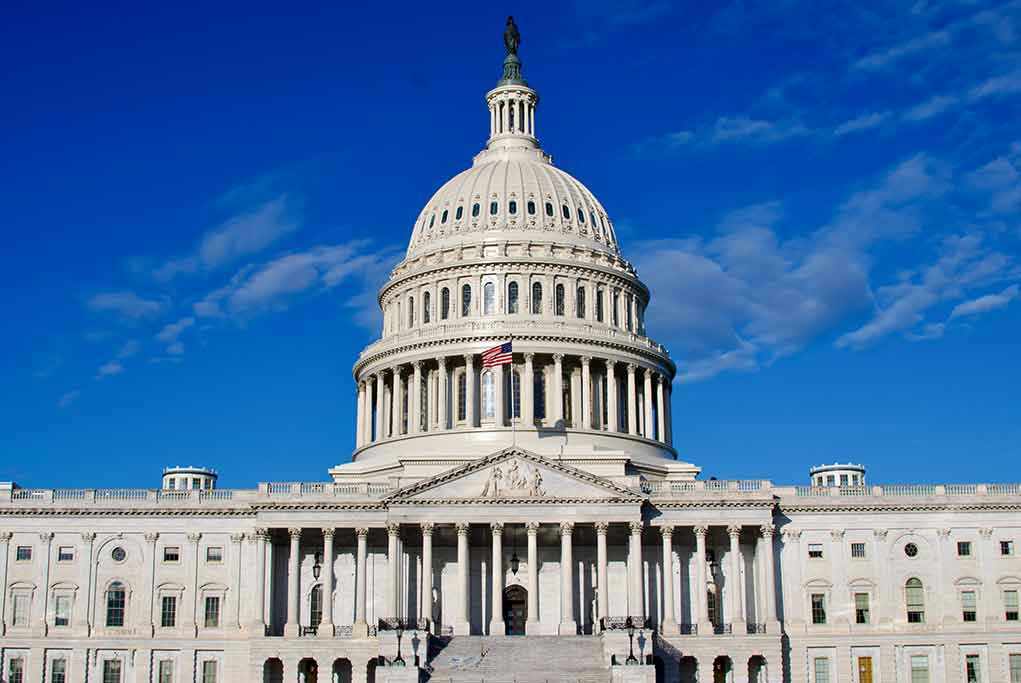
Congress faces unprecedented accountability as a sweeping bipartisan bill aims to end lawmakers’ ability to profit from insider stock trades, sparking fierce debate over ethics and government trust.
Story Snapshot
- The Restore Trust in Congress Act would ban individual stock trading by members of Congress and their families.
- Bipartisan support and public outrage over recent scandals drive momentum for swift passage.
- Strong enforcement provisions target loopholes that previously allowed questionable trades.
- If enacted, the bill could transform public trust and set new standards for government transparency.
Roots of Congressional Stock Trading Controversy
For decades, congressional stock trading has fueled widespread skepticism about lawmakers’ integrity. Scandals involving the use of non-public information for personal gain have eroded trust in elected officials and sparked calls for reform. The 2012 STOCK Act mandated public disclosure of trades but stopped short of banning them, leaving loopholes that enabled potential conflicts of interest. High-profile events, like questionable trades during the COVID-19 pandemic, intensified bipartisan frustration and led to demands for a new approach that would close these gaps and restore confidence in government.
Bipartisan Push and Powerful Backers
In September 2025, Representatives Chip Roy (R-TX) and Seth Magaziner (D-RI) introduced the Restore Trust in Congress Act, joined by sixteen cosponsors spanning the political spectrum. Conservative leaders such as Speaker Mike Johnson and President Trump voiced support, signaling a rare moment of unity around the need for ethics reform. Advocacy groups like Issue One and the ReFormers Caucus praised the bill’s intent to end self-dealing and strengthen institutional transparency. The bipartisan coalition increases the bill’s viability, with leadership backing crucial to advancing it toward a floor vote and setting the stage for parallel Senate action.
Key Provisions and Enforcement Mechanisms
The Restore Trust in Congress Act fundamentally prohibits members of Congress and their families from trading individual stocks, requiring divestment—with limited exemptions. Unlike previous laws, this legislation closes major loopholes and introduces robust enforcement mechanisms. Lawmakers found in violation would face significant penalties, and the bill outlines clear compliance requirements, making it difficult to circumvent its intent. Sponsors argue this approach balances the need for fairness with the imperative to prevent corruption, directly responding to overwhelming public support: recent polls show 86% of Americans favor a congressional trading ban.
Ethics Reform, Public Trust, and Conservative Concerns
Supporters claim the legislation could mark a turning point in restoring trust in government. By removing the incentive for personal financial gain, Congress would be held to a higher ethical standard, addressing years of public outrage over perceived self-serving behavior. For conservatives frustrated by government overreach, fiscal mismanagement, and ethical lapses, the bill represents a victory for accountability and constitutional principles. If passed, it may set a precedent for similar reforms at state and local levels, reshaping expectations for transparency and integrity in public office.
Bipartisan Lawmakers Introduce Bill to Ban Stock Trading by Congress Members https://t.co/2BbngXgM7x via @epochtimes
— Joe Honest Truth (@JoeHonestTruth) September 4, 2025
Potential Impact and Ongoing Debates
The bill’s short-term effects include increased scrutiny of lawmakers’ financial activities and possible divestment by members and their families. Financial advisors and asset managers serving elected officials may need to adjust their practices, and demand for blind trusts could rise. Long-term, the legislation could reduce insider trading and unethical financial behavior, improving public perception of Congress. Critics question the feasibility of enforcement and whether the new requirements could unintentionally affect lawmakers’ personal finances. Still, the broad bipartisan and public support signals urgency for reform, with key facts corroborated by advocacy groups, press releases, and reputable news outlets.
Sources:
Press Release: Magaziner and Roy Introduce Bipartisan Bill to Prohibit Congressional Stock Trading
Introduction of Bipartisan Stock Trading Ban in the House
Restore Trust in Congress Act Coverage

